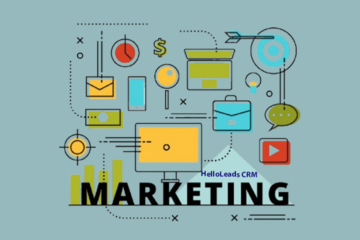
Imagine possessing a remarkable weapon within your marketing arsenal—one that allows you to focus your efforts like a laser on the most promising leads. This weapon is lead qualification, akin to a superpower that separates the wheat from the chaff, revealing prospects with the highest conversion potential.
In this blog post, we’ll unveil the magic of lead qualification and demonstrate how it can revolutionize your marketing strategy. Prepare to unlock the doors to success as we explore the intricacies of lead qualification, arming you with the tools to conquer your sales goals. Join us on a journey to discover the extraordinary possibilities that await!
What is lead qualification?
Lead qualification is the process of evaluating the potential of a prospective customer, based on specific criteria, to determine whether they are worth pursuing as a sales opportunity or not. The purpose of lead qualification is to identify high-quality leads who have a higher likelihood of becoming paying customers.
Lead qualification typically involves evaluating leads based on certain characteristics, such as budget, authority, need, and timeline (shortened as BANT). This evaluation helps sales teams prioritize their efforts, allocate resources more effectively, and ultimately close more deals.
The lead qualification process also helps to refine your understanding of your target market and ideal customer profile, allowing you to create more effective marketing campaigns and messaging that better resonate with your target audience.
Why is lead qualification important?

Lead qualification is an important step in the sales and marketing process because it helps to determine which leads are worth pursuing and which are not. By properly qualifying leads, sales and marketing teams can ensure that they are spending their time, resources, and budget on the most promising opportunities.
Here are a few key reasons why lead qualification is important:
Increases efficiency: Qualifying leads helps to identify the most promising prospects and focus the sales team’s efforts on them, reducing the amount of time spent on unqualified leads.
Improves conversion rates: By focusing on the most qualified leads, the sales team is more likely to close deals and achieve a higher conversion rate.
Maximizes ROI: By focusing resources on the most qualified leads, you can maximize your return on investment and achieve a better return on your marketing spend.
Enhances customer experience: Lead qualification helps to ensure that prospects are not bombarded with irrelevant sales pitches or communications, which can improve the customer experience and increase the likelihood of successful sale.
Aligns sales and marketing teams: Lead qualification helps to ensure that the sales and marketing teams are aligned on the most promising prospects, which can improve collaboration and achieve better results.
Lead qualification process
The lead qualification process typically involves the following steps:
Identify lead source: Determine where the lead came from and what kind of information they have already provided.
Gather information: Collect additional information about the lead through research, online resources, or direct communication.
Evaluate lead fit: Determine whether the lead fits your ideal customer profile and whether they are a good match for your product or service.
Assess lead readiness: Determine whether the lead is ready to move forward in the sales process, and whether they have the budget, authority, need, and timeline to make a purchase.
Prioritize leads: Based on the results of the lead qualification process, prioritize your leads and determine which ones are most likely to become customers.
Move to next stage: If the lead is qualified, move them to the next stage of the sales process and continue to engage with them until they are ready to make purchase.
What is a qualifying question?

A qualifying question is a type of question used in the lead qualification process to assess the lead’s fit and readiness to move forward in the sales process. Qualifying questions help determine whether a lead is a good match for your product or service, and whether they have the budget, authority, need, and timeline to make a purchase.
Examples of qualifying questions might include:
- What are the biggest challenges you are facing in your business right now?
- What is your current budget for this project?
- Who else is involved in the decision-making process for this purchase?
- How soon do you need to have this problem solved?
- Can you describe your ideal solution to this problem?
Qualifying questions are used to gather information about the lead and help determine whether they are a good fit for your product or service. By asking the right questions, you can assess their needs, wants, and buying motivations, and determine whether they are ready to move forward in the sales process.
In closing, lead qualification stands as the vital bridge that connects sales and marketing efforts, empowering businesses to make well-informed decisions and amplify their chances of success. Through the adoption of a robust lead qualification process, organizations can achieve increased efficiency, heightened conversion rates, maximized ROI, elevated customer experiences, and seamless alignment between sales and marketing teams.
Remember, successful lead qualification hinges on asking the right qualifying questions to gauge a lead’s fit and readiness to advance. By honing your lead qualification strategy and consistently optimizing your process, you unlock the full potential of your sales pipeline, propelling sustainable growth for your business. Embrace the potency of lead qualification, and witness your sales ascend to unprecedented heights.
Share this blog :










